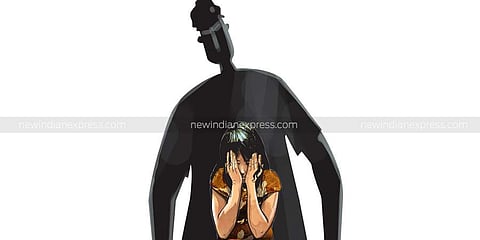#MeToo: How gaslighting is used to fool victims
During the ongoing #MeToo saga, a phenomenon termed ‘gaslighting’ has come into emergence. According to the Oxford English dictionary, gaslighting is “a phenomenon of manipulating someone (or in these cases victims) by psychological means to doubt their own truth and sanity.” The dictionary meaning may sound simple but this is a psychiatric phenomenon with seriously damaging consequences on the victim side.
The Phenomenon
In a patriarchal society like India, it is often in sexual harassment cases that the victim is made to believe that his/her fighting back wouldn’t make any difference. At times it is also seen that the perpetrators try to convince the victims that they were part of the crime. Dr Anuja Trehan Kapur is a practicing criminal psychologist who has shared her theories on Delhi gang-rape case, Indrani Mukherjee case, Aarushi murder case and several others.
Explaining this phenomenon she said, “Gaslighting is making the victim believe that he/she was also a part of the sexual harassment. In many cases, the perpetrators try explaining, “Don’t play a victim game now when you were also enjoying it.” At times even the victims are brainwashed by their close friends and relatives for not escalating the matter. As a result, the victim starts to doubt themselves and the decisions they took at that moment. This leads to victim going into depression and mental trauma.”
Historical instances
Gaslighting practically makes a person mentally handicapped thus lowering their self-esteem and making them feel ashamed of what they weren’t even part of. But the phenomenon is not restricted to harassment cases. It can happen even in a relationship. In fact, the term 'Gas Light' has its origins from a 1938 drama which goes by the same name. In the play the man makes his wife believe that she is insane so that he can steal her jewels.
In 2012, CNN reported on the mass dismissal of women from US armed forces on the basis of being diagnosed by personality disorder. The report points out that every woman who was being dismissed on the grounds of being ‘unfit’ for the services had complained against the sexual assault, harassment or rape. The army women when complained about sexual misconduct, they were told to shut up. When they refused to, the best US army could do was to dismiss them after psychiatric diagnosis and discharge. In short, they were deemed as ‘crazy’.
What doesn’t constitute gaslighting
Now there are certain rare circumstances where a fact has many sides – commonly known as the grey area. It is quite possible in the present world that there arise a set of questions against a certain allegation. And even though we most of us believe a victim, journalists, lawyers, and investigators tend to question them for getting clarity on the case. However, these do not constitute gaslighting.
So how should we deal with the grey area mentioned above? “It is overwhelming that so many women are speaking up. We should listen to them and let the law take its course. Neither can we say the accusations are false nor can we label the accused as predators,” opined Dr Kapur.
Ill-effects of gaslighting
In many cases, it is seen that victims of gaslighting often doubt themselves and start to adjust with the fact. They tend to believe that everything is normal until they compare their instances with others. Once the blindfold opens, the victims feel devastated and tortured, and at times even drive towards harming themselves.
In some of the #MeToo cases, the accused have apologised on social media following the allegations. According to Dr Kapur, the apologies are also a way of gaslighting the victims who might want to take a legal action. In some cases it works, while it doesn’t in others. But what happens if the accused comes back after several years and throws sugar-coated words of apology at the victim?
“The accused at times provide a diplomatic apology which builds a mental and psychological pressure on the victims. They also try to convince the victims not to take any legal action as it would lead to their naming and shaming. For the harassed who constantly doubted themselves and in a way waiting for an apology, the perpetrators’ words complete the circle. Many go into depression and some even commit suicide” said Dr Kapur.
Overcoming and precautions
Courage is not just a word but a weapon which led actor Tanushree to start the #MeToo fire. Believing in oneself and staying firm for themselves is the best weapon against gaslighting. Preventing oneself from gaslighting not just prevents the harassed from undergoing any further trauma but also empowers a woman. That’s why a constant demand of women to be heard is being raised from across the country irrespective of their professions.
Secondly, if the assaulted finds himself/herself gaslighted, he/she must realise that it is not the end of the world. Medical counselors should be contacted for any help. Mental health experts and psychologists’ advice should also be sought. One can come out of gaslighting with adequate medical treatment, and support from relatives and close friends.

